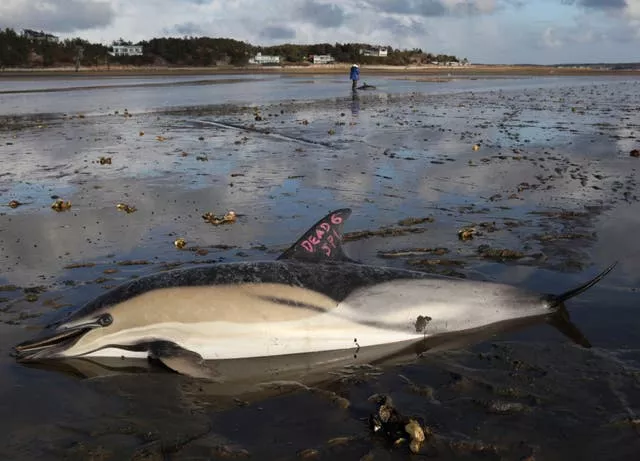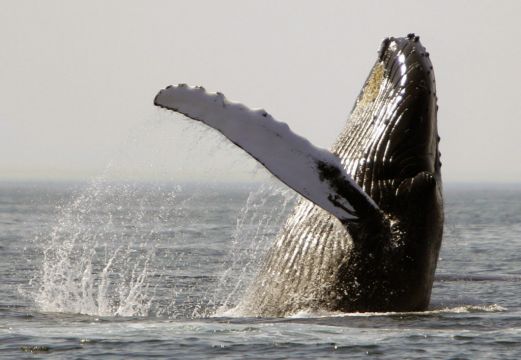Whales, dolphins and seals living in US waters face major threats from warming ocean temperatures, rising sea levels and decreasing sea ice volumes associated with climate change, according to a first-of-its-kind assessment.
Researchers with the National Oceanic and Atmospheric Administration examined more than 100 stocks of American marine mammal species and found more than 70% of those stocks are vulnerable to threats, such as loss of habitat and food, due to the consequences of warming waters.
The impacts also include loss of dissolved oxygen and changes to ocean chemistry.
The scientists found large whales such as humpbacks and North Atlantic right whales were among the most vulnerable to climate change, and that other toothed whales and dolphins were also at high risk.

The study, published last month in the journal PLOS One, is evidence that the way the US manages whales and dolphins needs to adapt in the era of climate change, advocates for marine mammals said.
The news is bleak, but the assessment also is the first to look solely at marine mammal stocks managed by the US and the results can help inform federal ocean managers about how to safeguard the vulnerable animals, said Matthew Lettrich, a biologist and lead author of the study.
“As the climate’s changing, we’re seeing some of the effects already, and some of our marine mammal populations are more vulnerable to those changes than others,” Lettrich said.
“Based on this study, we see a good proportion are highly and very highly vulnerable.”
The researchers studied marine mammals living in the western North Atlantic ocean, Gulf of Mexico and Caribbean Sea.
The animals are managed by the National Marine Fisheries Service, the arm of the federal government responsible for stewardship and protection of marine resources.
The scientists looked at the animals’ degree of exposure to climate change and sensitivity and capacity to adapt to it. They found 72% of the stocks were highly or very highly vulnerable to climate change, with a little less than half falling in the “very high” category.
The warming ocean primarily harms marine mammals by altering their ability to find food and reduces their amount of suitable habitat, the study said.
However, the scientists said changes to ocean temperature and chemistry also can change sound transmission.
That can affect the sonar-like echolocation marine mammals such as dolphins use to communicate and hunt.
Climate change “must be considered to adequately manage species,” the study states.
The NOAA study is significant because it’s the first to look broadly at US marine mammals and attempt to predict their resiliency to climate change, said Regina Asmutis-Silvia, a biologist with Massachusetts-based Whale and Dolphin Conservation who was not involved in the study.
The whales will benefit from the study if the information is used to implement laws protecting them, Ms Asmutis-Silvia said.







